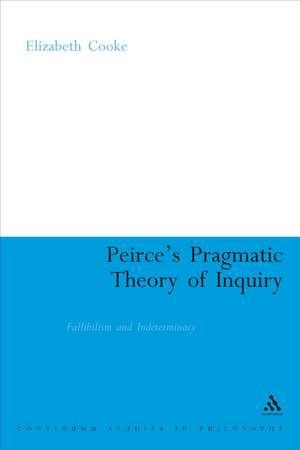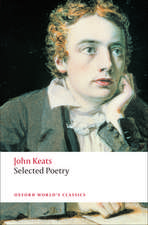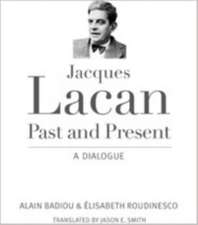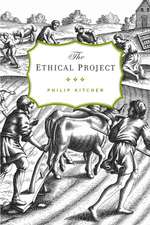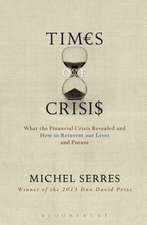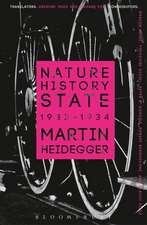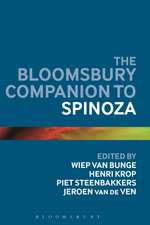Peirce's Pragmatic Theory of Inquiry: Fallibilism and Indeterminacy: Continuum Studies in American Philosophy
Autor Elizabeth Cookeen Limba Engleză Hardback – 5 noi 2006
Din seria Continuum Studies in American Philosophy
- 22%
 Preț: 1006.62 lei
Preț: 1006.62 lei - 22%
 Preț: 1004.76 lei
Preț: 1004.76 lei - 22%
 Preț: 256.12 lei
Preț: 256.12 lei - 22%
 Preț: 1005.41 lei
Preț: 1005.41 lei -
 Preț: 256.67 lei
Preț: 256.67 lei - 31%
 Preț: 888.97 lei
Preț: 888.97 lei - 19%
 Preț: 465.14 lei
Preț: 465.14 lei - 22%
 Preț: 889.97 lei
Preț: 889.97 lei -
 Preț: 254.75 lei
Preț: 254.75 lei - 23%
 Preț: 255.66 lei
Preț: 255.66 lei -
 Preț: 256.12 lei
Preț: 256.12 lei - 22%
 Preț: 1007.20 lei
Preț: 1007.20 lei - 14%
 Preț: 889.88 lei
Preț: 889.88 lei -
 Preț: 254.28 lei
Preț: 254.28 lei -
 Preț: 255.66 lei
Preț: 255.66 lei -
 Preț: 255.76 lei
Preț: 255.76 lei - 22%
 Preț: 256.12 lei
Preț: 256.12 lei
Preț: 1006.30 lei
Preț vechi: 1291.13 lei
-22% Nou
Puncte Express: 1509
Preț estimativ în valută:
192.59€ • 199.53$ • 160.72£
192.59€ • 199.53$ • 160.72£
Carte tipărită la comandă
Livrare economică 21 martie-04 aprilie
Preluare comenzi: 021 569.72.76
Specificații
ISBN-13: 9780826488992
ISBN-10: 0826488994
Pagini: 192
Dimensiuni: 156 x 234 x 13 mm
Greutate: 0.45 kg
Ediția:New.
Editura: Bloomsbury Publishing
Colecția Continuum
Seria Continuum Studies in American Philosophy
Locul publicării:London, United Kingdom
ISBN-10: 0826488994
Pagini: 192
Dimensiuni: 156 x 234 x 13 mm
Greutate: 0.45 kg
Ediția:New.
Editura: Bloomsbury Publishing
Colecția Continuum
Seria Continuum Studies in American Philosophy
Locul publicării:London, United Kingdom
Caracteristici
Unites the various strands in Peirce's thought via a fundamental analysis of his fallibilism
Cuprins
Abbreviations.
Acknowledgments.
Chapter 1: Introduction.
Chapter 2: Peirce's Critique of Foundationalism and Traditional Frameworks of Inquiry.
Chapter 3: Peirce's Positive Theory of Knowledge: The Growth of Knowledge.
Chapter 4: The Scope of Peirce's Fallibilism.
Chapter 5: Fallibilism Objectified: Peirce's Ontological Hypothesis of Synechism.
Chapter 6: Conclusions and Critique of Other Interpretations. Bibliography.
Index.
Acknowledgments.
Chapter 1: Introduction.
Chapter 2: Peirce's Critique of Foundationalism and Traditional Frameworks of Inquiry.
Chapter 3: Peirce's Positive Theory of Knowledge: The Growth of Knowledge.
Chapter 4: The Scope of Peirce's Fallibilism.
Chapter 5: Fallibilism Objectified: Peirce's Ontological Hypothesis of Synechism.
Chapter 6: Conclusions and Critique of Other Interpretations. Bibliography.
Index.
Recenzii
-Mention. The Chronicle of Higher Education/ May 11, 2007
"Cooke's thin volume is (as far as I can tell) the first book-length study primarily focusing on fallibilism in Peirce's thought. The book is accessible for those beginning with Peirce...However, the book is not merely an introduction, as Cooke also sharply engages in debates over the meaning of fallibilism and its compatibility with other aspects of Peirce's philosophy...I warmly recommend Cooke's volume-especially its final chapter on hope-to Peirce scholars and philosophers of science. It is a clearly written...study of a fundamental theme in Peirce and in pragmatists theory of inquiry generally." -Sami Pihlstrom, Philosophy in Review
'This book is certain to change the direction of Peirce studies, and perhaps of epistemology in general, toward the primacy of fallibilism in all forms of human knowledge.' Richard J. Blackwell, Professor Emeritus, St. Louis University
"Cooke's thin volume is (as far as I can tell) the first book-length study primarily focusing on fallibilism in Peirce's thought. The book is accessible for those beginning with Peirce...However, the book is not merely an introduction, as Cooke also sharply engages in debates over the meaning of fallibilism and its compatibility with other aspects of Peirce's philosophy...I warmly recommend Cooke's volume-especially its final chapter on hope-to Peirce scholars and philosophers of science. It is a clearly written...study of a fundamental theme in Peirce and in pragmatists theory of inquiry generally." -Sami Pihlstrom, Philosophy in Review
'This book is certain to change the direction of Peirce studies, and perhaps of epistemology in general, toward the primacy of fallibilism in all forms of human knowledge.' Richard J. Blackwell, Professor Emeritus, St. Louis University
